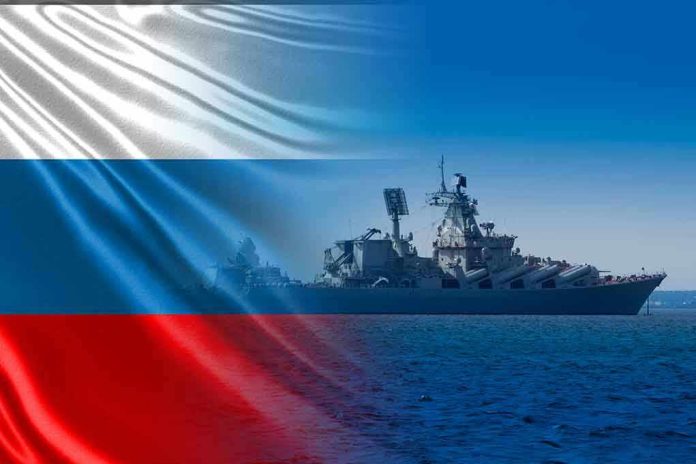
In a world teetering on the brink, Russia’s recent warning of escalating nuclear tensions is a stark reminder of the dangerous game being played on the global stage.
At a Glance
- Russia issues a warning on rising nuclear tensions amid ongoing conflict with Ukraine.
- Kremlin denies the possibility of a Nuclear Five summit due to heightened militarization.
- Large-scale Russian missile and drone strikes continue against Ukraine.
- Western allies pledge additional military support to Ukraine.
Russia’s Latest Nuclear Warning
Russia’s recent warning on escalating nuclear tensions reverberates through an already tense international community. Kremlin spokesperson Dmitry Peskov declared on July 22, 2025, that there was “clearly no basis” for a Nuclear Five summit, citing increasing nuclear tensions and militarization. This comes amidst a backdrop of intensified military actions, with Russia launching large-scale missile and drone attacks on Ukrainian infrastructure.
The situation in Ukraine remains dire, with Russian forces not letting up on their aggression. Over 400 drones were deployed in a single night, marking one of the largest strike packages to date. This escalation underscores the Kremlin’s hardened stance and its rejection of diplomatic engagement on nuclear risk reduction. The nuclear rhetoric from Russia is intended to deter Western intervention, but it only heightens the risk of miscalculation in this volatile environment.
Western Response and Military Support
While Moscow beats the drums of war, Western partners are not standing idly by. Countries like the U.K. have renewed their pledges of military and financial support to Ukraine, demonstrating a united front against Russian aggression. The West’s strategy is clear: support Ukraine’s sovereignty and deter further Russian advances without triggering a nuclear confrontation.
NATO’s response has been to bolster its eastern flank and increase military readiness. The alliance’s actions are driven by a need to assure member states and deter any Russian aggression. But the Kremlin’s nuclear posturing is a calculated move to exploit divisions within NATO, hoping to fracture the alliance’s resolve. Yet, Western leaders remain steadfast, aware of the high stakes involved in this geopolitical chess game.
Impact on Global Security
The implications of Russia’s nuclear threats are far-reaching. Short-term, there’s an increased risk of accidental escalation between nuclear powers, which could have catastrophic consequences. European nations are on high alert, ramping up military readiness and preparing for any eventuality. The humanitarian crisis in Ukraine continues to deepen, with civilians bearing the brunt of the ongoing conflict.
Long-term, this situation threatens to unravel the global nuclear arms control framework established over decades. As dialogue breaks down, the risk of a new arms race looms, with nations potentially expanding their nuclear arsenals. The destabilization of international security norms could encourage nuclear proliferation, making the world a more dangerous place.
Sources:
Wikipedia: Nuclear risk during the Russian invasion of Ukraine
Institute for the Study of War: Russian Offensive Campaign Assessments
Institute for the Study of War: Russian Offensive Campaign Assessments
United Nations: Statements on nuclear safety and Russian strikes




